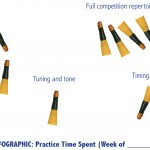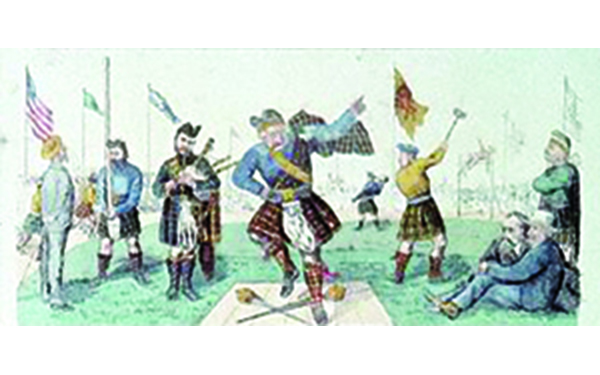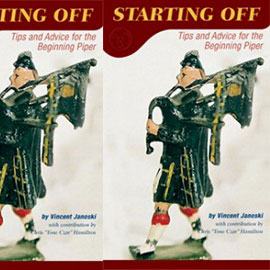Assessing Your Intangible Bagpiping Assets
 In the world of finance, assets are any resource, tangible and intangible, in your control, that can produce value. In the world of bagpiping, your assets would be anything you can access and use to produce music. The ultimate return or gain in this sense is playing good music on the bagpipe and anything that helps you do that can be considered an asset.
In the world of finance, assets are any resource, tangible and intangible, in your control, that can produce value. In the world of bagpiping, your assets would be anything you can access and use to produce music. The ultimate return or gain in this sense is playing good music on the bagpipe and anything that helps you do that can be considered an asset.
Tangible bagpiping assets are anything you can use right now. Your instrument, your technique, your reeds, your skill at performing; all of these are at your fingertips ready to go at a moment’s notice and can be seen and heard by others.
But what about your intangible assets? Your day-to-day schedule, your lifestyle, your mindset; all of these are also assets that factor in to your ability to make good bagpipe music.
We pipers spend a lot of time thinking about and working on our instruments and the finer points of music. Setting and working toward goals to refine these tangible assets are certainly beneficial. But it is the oftentimes ignored intangible assets that need to be assessed as well if you are to have success and achieve your goals.
Do you feel like you’re always shoehorning in practice time, and in some cases, skipping practice entirely? It could be that you need to take stock of your daily schedule to find out why that is. All of us will always have times where there are just too many priorities that need attention and bagpipe practice will get pushed lower on the list. But if it happens often, you would do well to review how you use your time for all the things in your life. If bagpiping is important to you, it is worth budgeting your time much like you would budget your finances to find where you really have it, or figure out what needs to change in order to create it. Be honest, how much time do you spend on Facebook? And, as much as I would love it if you spent loads of time reading this blog, how much time do you spend on the internet in general? It might be fun to dig through posts on newsgroups, but you know as well as I do that it is a timesink too. Little bits of time like that can add up to an entire practice session.
Does fitting in a solo competition appearance or pipe lesson always feel forced, like it’s a radical shift in your life, creating more complications? In addition to the time spent practicing bagpipes, there is time to actually perform/compete or obtain instruction. Take stock of your lifestyle: how busily you run from moment to moment; what you fill your time with; how you tackle the daily events of life. You might find the need to make small changes in order to get the most out of this additional time. You might see the need to scale back on things or simplify an overstuffed, overcomplicated lifestyle. Some of this comes down to planning and scheduling but at the heart of it is an objective assessment of how you live day to day. For example, if you wish to compete at one or several Highland games in future weekends on the calendar, there will likely be some life adjustments you can put in motion now so that those times transition smoothly and fit in to the grander scheme of things. You might have the need to work extra hours in advance for early travel on a Friday, for example. You may need to employ tricks to simplify house chores or mundane tasks so you have the energy, time, and focus for extra activity. I recently purchased An Everlasting Meal by Tamar Adler. The main thrust is how to simplify your approach to your cooking so that it is more efficient and enjoyable. Great advice for just about everything, not just food.
How often do you feel good or confident about your bagpipe playing? Your mindset or attitude is perhaps the greatest of your intangible bagpiping assets. It determines the successes you have when working with your tangible assets and determines how you deal with failure as well. Assessing your attitude is a trickier task but not as hard as you might think. If you had to tell someone right now how you feel about your bagpiping, what would you say? A overly negative response might be a signal that you are literally sabotaging your efforts by setting up negative routines and setting yourself up for bad results. That is something that you might need to change. If you are asked to give an opinion about the bagpiping of a fellow competitor(s), what would you say? Here again, a pointless negative answer shows that your regard for others and their efforts may be masking similar attitudes about your own playing. How you regard others also reflects your general feeling about this bagpiping thing as a whole. If it is really important to you and you truly derive pleasure from it, your response would take on a different color. Yes, many pipers are in need of improvement (aren’t we all?). But there is a vast difference between saying “That performance was crap!” and saying “That piper really needs to work on their technique.”
 Pipehacker
Pipehacker








